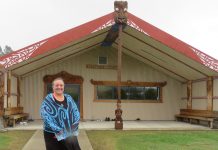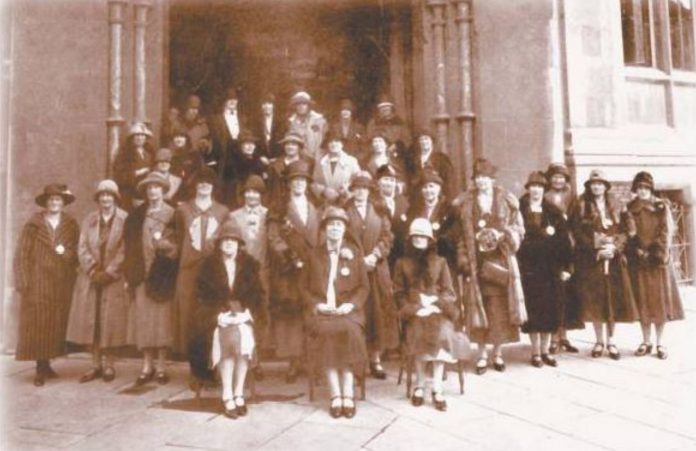
For 100 years Rural Women New Zealand (RWNZ), originally Women’s Division of the Farmers Union, have been a powerful voice for rural women and their communities across New Zealand.
Across Mid Canterbury branches have met, talked, discussed and taken action on matters they are passionate about. They have run workshops, events, social occasions and fundraisers – including a popular calendar girl fundraiser.
Mid Canterbury branches have been at the forefront of some big projects including as the trial district for the nationwide 20k either way bus campaign to reduce the speed of motorists past school buses, to the Aftershock Socks fundraising project.
Rural Women Mid Canterbury member Sandra Curd said in 2011 a trial was undertaken in the Mid Canterbury District, driven by members and carried out by Tertiary Education Research New Zealand, with funding from the Road Safety Trust as well as support from police and the district council.
‘‘The trial entailed installing 20 km/h signs on buses. Mid Canterbury branches continue to promote 20k either way past a stationary school bus,’’ Curd said.
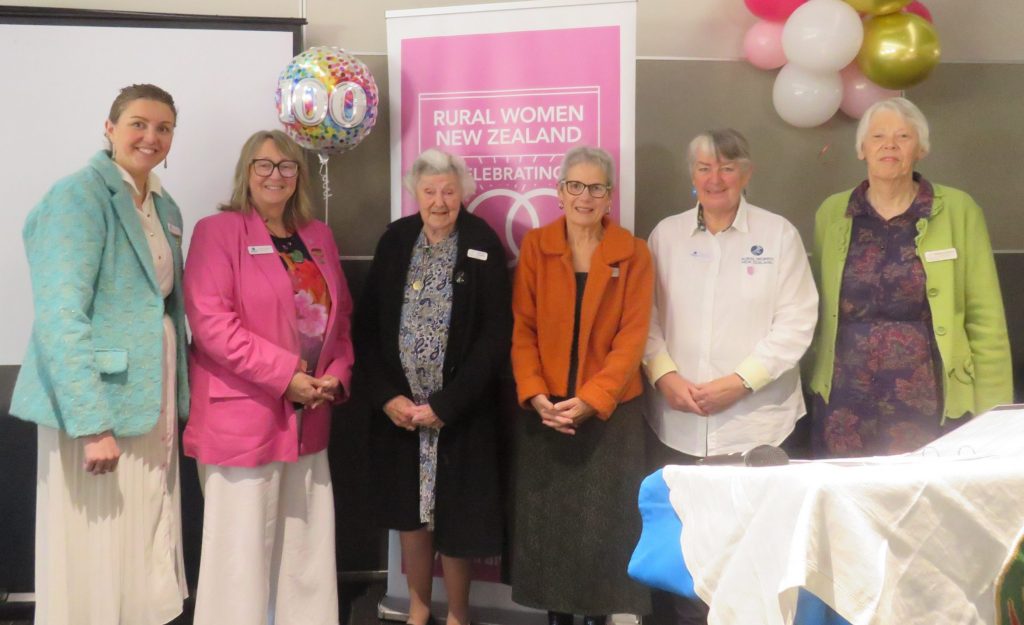
Following the Canterbury Earthquakes, Aftershock Socks were made at the NZ Sock Company in Ashburton and sold to raise funds for the RW adverse events account. It is used to provide support to people following events like the earthquakes.
On Thursday last week about 60 members of Rural Women from Canterbury gathered at the Hotel Ashburton to celebrate the centennial of their organisation with a regional conference.
The conference was a time of celebrating and reflection of all the organisation had achieved. Along with cake cutting, speeches were made by the regional chair Cathy Ritson and national president Sandra Matthews.
The main speaker was the winner of their 2024 business awards Harriet Bell from Hemprino, who blends ethical ZQ-certified merino wool and hemp into knitwear that feels softer, lasts longer, and treats lighter.
The conference included the launching of the centennial regional project, ‘100 for 100’ where members will knit 100 ‘fish ‘n’ chip’ tops for Plunket.
The winner of the centennial scholarship was also announced. It went to Brooke Mackenzie.
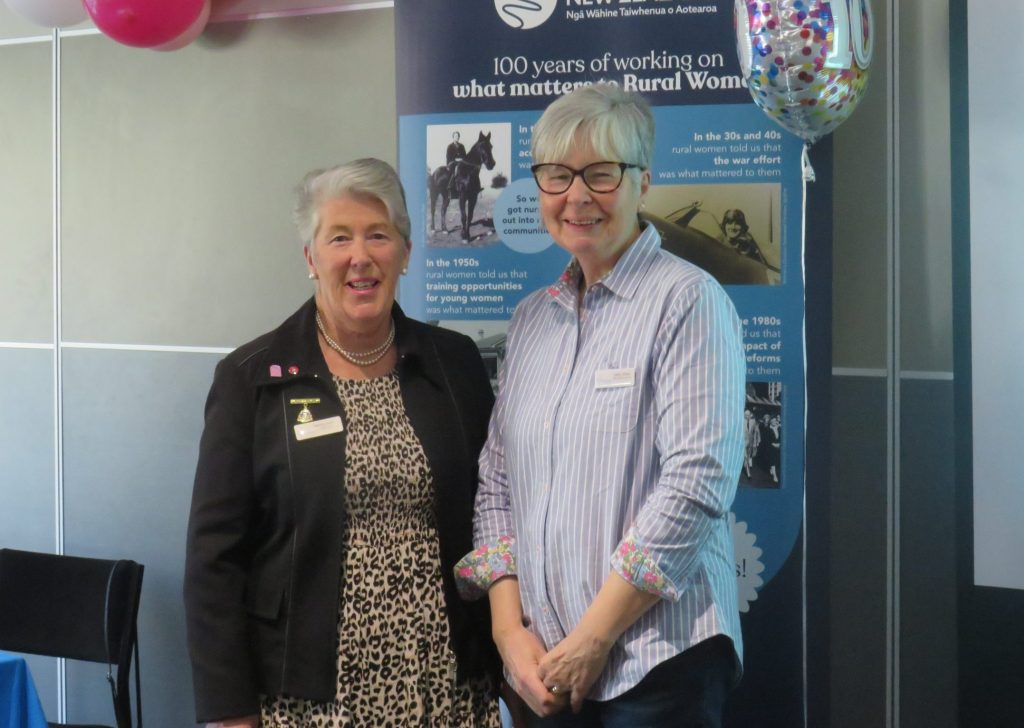
Mackenzie from Methven is a third-year law student at Canterbury University.
She said winning the scholarship meant a great deal to her.
‘‘It was a recognition of all the hard work I have put in to get to where I am in my degree. It was a recognition of the support of the community for without that I wouldn’t being doing as well as I am.
‘‘To be in a room full of such strong women who have done amazing things was an incredible experience in and of itself. I knew winning was a possibility in theory but I don’t think it ever sunk in that I could do it in reality.
“I’m beyond honoured to have been chosen, and I’m really proud of what I have achieved.’’
The one-off scholarship was hotly contested by 35 applicants.
It was open to tertiary students residing in Canterbury either enrolled in a full-year course of a short or long-term courses undertaken with a recognised education provider.
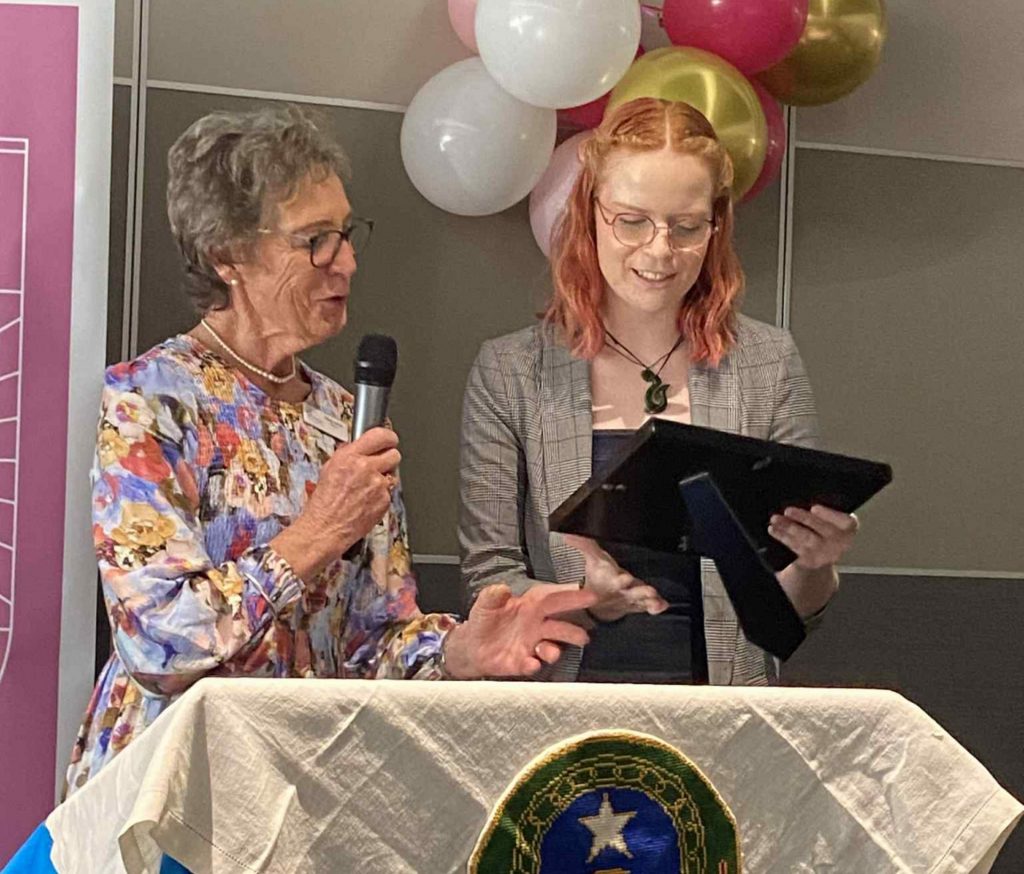
Mackenzie, 21-years-old, said being awarded the scholarship felt like a homage to her late grandmother who had been a member of the Anama branch of Rural Women. She expressed her appreciation to Rural Women for selecting her.
‘‘It is a great honour and I shall treat it as such,’’ Mackenzie said.
Presently she was not sure what the scholarship will be used for but it may assist with textbooks in her fourth year of study or it might be used if she goes on to do her masters.
Her goal for the future is to help make law more accessible to the general population. ‘‘It is hard to get appropriate legal help when you don’t know what to ask in order to get the help you need.
‘‘If I could make even one small difference for one person I would be incredibly happy.
‘‘I have a passion for community minded law, where I can give back to the community who helped to raise me and shape me into the person that I am now,’’ Mackenzie said.
Mackenzie has advice for anyone thinking of applying for a scholarship, ‘‘just do it’’.
‘‘The worst that can happen is they say no, at which point it’s just not the right time. People are always willing to help, you just have to find the right person,’’ she said.



